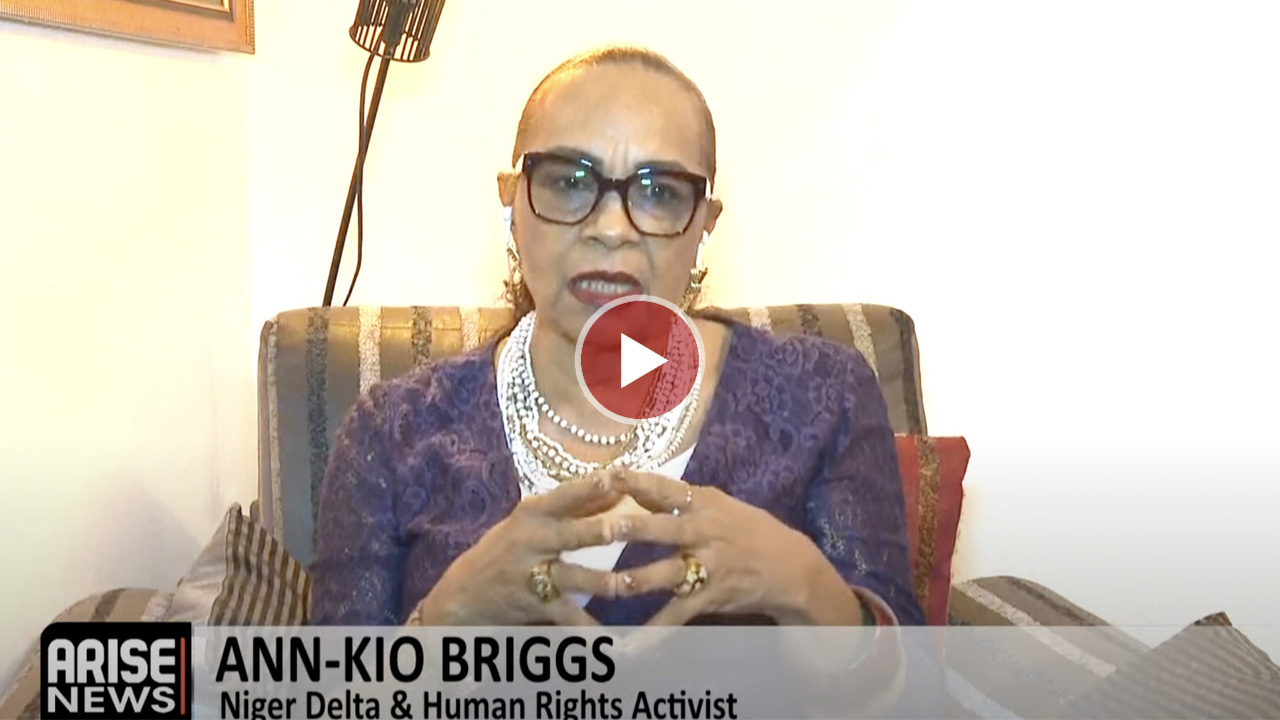

Niger Delta and human rights activist, Ann-Kio Briggs, has said Nigeria has wasted 65 years of independence through failed leadership, poor governance, and deliberate exclusion of women, warning that the country’s current state is a betrayal of the expectations at independence.
Speaking in an interview with ARISE News on Thursday, Briggs recalled her childhood memories of independence in 1960 but said the optimism of that era had long been dashed.
“I remember the rice that was cooked that day in school. I remember the taste till today. It was exciting. My father explained independence to me, and I understood the need for Nigeria to be free. But almost 65 years later, I ask myself: did we really move forward? Did we achieve those expectations? And if we did, to what percentage? Because today, Nigeria is in a very poor state in terms of development, unity, and capacity as the largest black nation in the world.”
She expressed disappointment over how oil wealth, which should have transformed the country, has instead deepened poverty and division.
“The Niger Delta screamed for development and better governance, but from 1960 till now, we have not done well. We hear Dubai borrowed money from Nigeria when they found oil, and we turned them down. Today, Dubai has the tallest buildings and invests all over the world, including in Nigeria. Yet we, who drove them away, have nothing to show. No, Nigeria has not done well.”
Briggs blamed the country’s stagnation on leadership failures and wrong people in positions of power.
“As long as we continue to repeat this cycle of putting people who don’t know how to govern, we will keep talking about what is wrong. We are not choosing the people who can do what is right for Nigeria.”
On the state of women 65 years after independence, she said Nigeria had failed to give women equal opportunities, despite the critical role they played in history.
“We have great Nigerian women, but our culture has always held women back. Women are always in a struggle within a struggle—whether in the boardroom, the creeks or the market. Even when I started this work in 1998, many women told me, ‘I can’t do what you’re doing because my husband won’t allow me.’ But there comes a time when you must participate in life not just as a woman, but as a human being.”
She added that women must push harder into politics and governance.
“From independence till now, I don’t know how many women we can count on our two hands who have prominence in politics. Women must support one another. If we had more women in politics like Natasha [Akpoti-Uduaghan], corruption and the sense of entitlement men carry would reduce. Sadly, I never wanted to go into politics because the system would not allow me to do things the right way.”
Turning to the Niger Delta and Rivers State, Briggs lamented the persistent crisis, criticising the culture of silence and delay in addressing pressing issues.
“What we have in Rivers State today is silent but ongoing crisis. The culture of taking things to their logical conclusion does not exist. We cannot keep saying ‘we will get there in 20 or 50 years.’ That is a waste of time. We must aim to get there now, and women should drive that process. Men have had their chance and failed. Women should now take the opportunity to do better—not to compete, but to do better for Nigeria.”
Briggs concluded by insisting that truth, inclusion, and women’s leadership were crucial for Nigeria to escape its cycle of failure.
“It doesn’t make you any less patriotic to admit that something has gone terribly wrong in Nigeria. We must face the truth if we want real change.”
Boluwatife Enome


